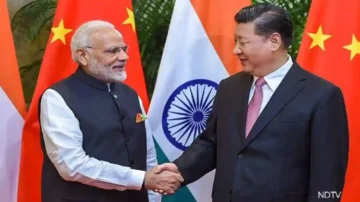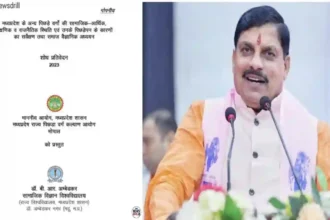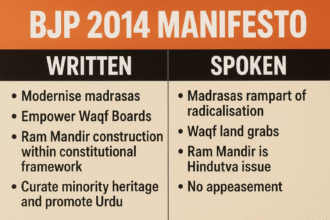
Ahmedabad – The Nitin Gadkari ethanol policy is now at the center of a major controversy after revelations that companies linked to his sons have seen exponential growth since its rollout. While Union Minister of Road Transport and Highways Nitin Gadkari pushed for the adoption of E20 fuel across India, both of his sons reportedly benefited through their roles in ethanol-producing companies. This has triggered accusations of conflict of interest, with growing public outrage and demands for Gadkari’s resignation.
Rise of CIAN Agro
CIAN Agro Industries & Infrastructure Ltd., where Nikhil Gadkari — son of Union Minister Nitin Gadkari — serves as a director, has witnessed a staggering financial transformation.
The company’s revenues skyrocketed 3000% in a single year.
Its stock price surged from ₹40 to ₹668 in just 16 months, a growth of more than 550%.
This sharp rise coincided with the rollout of the Nitin Gadkari ethanol policy, particularly the implementation of the E20 fuel mandate, which boosted demand for ethanol production across the country. Critics argue that this timing is no coincidence and points toward unfair advantages enjoyed by politically connected firms.
Manas Agro and the Second Son
The controversy doesn’t end with CIAN Agro. Another ethanol focused company, Manas Agro Industries, lists Sarang Gadkari, Nitin Gadkari’s other son, as its Whole Time Director. Both brothers are deeply embedded in the ethanol sector one as a director at CIAN Agro, the other holding a leadership position at Manas Agro.
This dual involvement of Gadkari’s sons in ethanol companies while their father spearheads the Nitin Gadkari ethanol policy has fueled allegations of nepotism and misuse of political power.
Conflict of Interest
The central issue is whether Nitin Gadkari’s position as the architect of India’s ethanol policy unfairly benefits his family’s businesses. As the Union Minister for Road Transport and Highways, Gadkari has been the most vocal advocate for the adoption of E20 fuel (20% ethanol blended petrol). While the policy was framed as a step toward energy independence and greener fuels, critics highlight three major problems:
Engine damage — E20 fuel is known to harm engines not designed for such blends.
Reduced mileage — Consumers complain that vehicles running on E20 deliver lower mileage.
No reduction in fuel prices — Despite ethanol blending, petrol has not become cheaper for the public.
This has led many to conclude that the Nitin Gadkari ethanol policy benefits private businesses more than the Indian consumer, with Gadkari’s sons positioned as direct beneficiaries.
Social Media Outrage
Public anger has been mounting on social media platforms, where users have demanded Gadkari’s resignation. Hashtags linking the Nitin Gadkari ethanol policy to conflict of interest have trended, with many pointing out that while retail investors face strict SEBI regulations, politically connected families seem to enjoy a free pass.
Several posts highlight the stark contrast:
- For retail investors, strict SEBI oversight.
- For politicians’ children, unprecedented growth in company valuations.
The optics of this situation have only deepened distrust, especially since Prime Minister Narendra Modi’s government has consistently promised “clean governance” and a fight against corruption.
Political Implications
The controversy comes at a sensitive time for the government. With general elections around the corner, allegations that the Nitin Gadkari ethanol policy is enriching his family could damage the ruling party’s credibility. Opposition leaders are expected to amplify this issue, portraying it as yet another example of political elites profiting at the expense of ordinary citizens. Congress already started raising questions & asking for clarification from Union Minister Nitin Gadkari & Central Government.
If demands for Gadkari’s resignation continue to escalate, the government will face the dilemma of either standing by a senior minister or taking action to safeguard its image of integrity.
Conclusion
The rise of CIAN Agro and Manas Agro under the shadow of the Nitin Gadkari ethanol policy raises serious questions about governance, ethics, and conflict of interest in Indian politics. While the policy was designed to promote clean energy and reduce dependence on fossil fuels, its benefits appear skewed toward companies run by the minister’s sons.
For the Indian public, the bigger questions remain unanswered:
Why should consumers bear the costs of engine damage and reduced mileage?
Why hasn’t petrol become cheaper despite ethanol blending?
And most importantly, can policies be trusted if they directly enrich the families of those who make them?
As calls for Nitin Gadkari’s resignation grow louder, the issue has become more than just about ethanol — it has become a test of accountability in Indian politics.
Stay connected with The News Drill for more updates.







